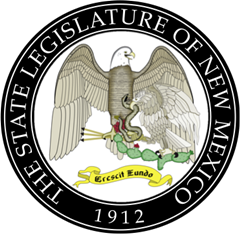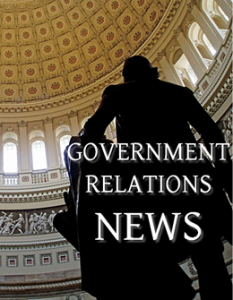February 24, 2017 •
News You Can Use Digest – February 24, 2017
Federal: Flynn Departure Erupts into a Full-Blown Crisis for the Trump White House Washington Post – Karen DeYoung, Abby Phillip, and Jenna Johnson | Published: 2/14/2017 President Trump’s ouster of national security adviser Michael Flynn, and the circumstances […]

Federal:
Flynn Departure Erupts into a Full-Blown Crisis for the Trump White House
Washington Post – Karen DeYoung, Abby Phillip, and Jenna Johnson | Published: 2/14/2017
President Trump’s ouster of national security adviser Michael Flynn, and the circumstances leading up to it, have become a major crisis for the fledgling administration, forcing the White House on the defensive and precipitating the first significant breach in relations between Trump and Congress. Senate Majority Leader Mitch McConnell said it was “highly likely” the events leading to Flynn’s departure would be added to a broader probe into Russian meddling in the U.S. presidential election. Intercepts showed Flynn discussed U.S. sanctions in a phone call with the Russian ambassador, a conversation topic that Flynn first denied and then later said he could not recall. McConnell’s comments followed White House revelations that Trump was aware “for weeks” that Flynn had misled Vice President Pence and others about the content of his late December talks with Russian Ambassador Sergey Kislyak.
Report Shows ‘Untapped Power’ of Constituent Advocacy
Roll Call – Bridget Bowman | Published: 2/13/2017
The Congressional Management Foundation released a report highlighting more than a decade’s worth of its surveys that show how citizens can best influence lawmakers. According to the group’s research, citizens who show up in person and are well-prepared with facts and arguments can have a sizable impact on undecided legislators. But recent flare-ups at town hall meetings across the country have also demonstrated the impact of constituents who show up and make their voices heard. Bradford Fitch, one of the report’s authors, said phone calls and emails are not necessarily the most effective ways of communicating with legislators, and neither is a confrontation. “When you’re yelling, Congress isn’t listening,” Fitch said.
Trump Campaign Aides Had Repeated Contacts with Russian Intelligence
New York Times – Michael Schmidt, Mark Mazzetti, and Matt Apuzzo | Published: 2/14/2017
Intercepted calls and phone records show several aides and allies to President Trump’s campaign were in contact with senior Russian intelligence officials. Current and former U.S. officials who spoke with The New York Times said the contacts were discovered during the same time that intelligence agencies were investigating Russia’s extensive hacking campaign, later determined to be aimed at helping Trump win the White House. The agencies sought to learn whether the Trump campaign was colluding with the Russians on the hacking or other efforts. The officials interviewed said so far, they had seen no evidence of such cooperation. But the intercepts alarmed American intelligence and law enforcement agencies, in part because of the amount of contact that was occurring while Trump was speaking glowingly about Russian President Vladimir Putin.
Who is Donald McGahn, the Fiery Lawyer at the Center of Virtually Every Trump Controversy?
Washington Post – Matt Zapotosky and Sari Horwitz | Published: 2/14/2017
As White House counsel, Donald McGahn is supposed to provide the president with legal guidance on the thorniest issues of the day, and to manage disputes between power players inside the administration and the various executive agencies. McGahn has been at the center of virtually every controversy during the Trump administration. He is a veteran campaign finance lawyer and former member of the FEC. Before taking over the role in the administration, he worked at the Jones Day law firm and as general counsel to the Trump campaign. He is a consummate Washington insider, but like the man for whom he works, he has an independent streak, those who know him say. “Don is not a buttoned-down guy,” said Bradley Smith, a law professor at Capital University and longtime professional friend of McGahn.
From the States and Municipalities:
Florida – At Miami’s Airport, There’s Economy, First Class and … Politician
Miami Herald – Douglas Hanks | Published: 2/8/2017
A new report from the Miami-Dade ethics commission chastised the county-owned Miami International Airport for offering elected officials VIP treatment, including golf-cart rides, cutting to the front of security and Customs, and other courtesies normally reserved for foreign dignitaries. Investigators concluded most of the trips by officeholders came during official government business. But there are multiple mentions of personal travel too, including trips to visit sick relatives and other unspecified vacations. The airport’s Protocol Office arranged four escorts for Rebeca Sosa, a county commissioner, and three for her sister. “These are unexplained,” the report said of the sibling’s VIP transits.
Florida
These Lawmakers Are On the Payroll of Firms That Lobby the Legislature
Sarasota Herald-Tribune – Zac Anderson | Published: 2/12/2017
The Florida Bar Association once issued a formal ethics opinion effectively prohibiting state lawmakers from working at firms that lobby the Legislature. That ethics opinion was rescinded in 1999 and now at least six Florida lawmakers, including the House speaker, work for law firms that lobby the Legislature. Those who defend the practice say there are provisions in state law and legislative rules to address any conflicts-of-interest. Some also argue that restricting such employment would discourage well-qualified individuals from serving in the Legislature because they would have to give up their jobs with big firms.
Kentucky – GOP Senators Want to Cut Sex Harassment Training
Louisville Courier-Journal – Morgan Watkins | Published: 2/13/2017
A few Republican state senators want to eliminate required sexual harassment training for lawmakers and cut back on the ethics-related instruction they receive, citing concerns about the effectiveness of those initiatives. Sen. John Schickel is sponsoring a bill would repeal existing requirements for lawmakers to go through sexual harassment and workplace harassment training. It also would require Kentucky legislators to sit through only 30 minutes of ethics-related instruction each January instead of the three hours currently mandated by state law. “It’s nothing more than political correctness training,” Schickel said. “If you don’t have good manners and good values when you come to Frankfort, I can assure you Frankfort will not teach them.”
Maryland – Gov. Hogan’s Office Has Blocked 450 People from His Facebook Page in Two Years
Washington Post – Ovetta Wiggins and Fenit Nirappil | Published: 2/8/2017
After a deluge of comments asking that he denounce President Trump’s controversial travel ban, Maryland Gov. Larry Hogan’s office blocked numerous posters and deleted their messages from his Facebook page. Gubernatorial spokesperson Doug Mayer said the governor’s office has blocked 450 people since Hogan took office two years ago. The office does not have a specific policy for handling comments on Hogan’s page, which has more than 146,500 likes. Mayer said most of the removed comments were “vulgar, derogatory, hateful or racist,” but aides have also deleted those that are a part of an organized effort. Erich Sommerfeldt, a public relations professor at the University of Maryland, said deleting negative comments, rather than responding to them, can hurt a company or public figure’s brand.
Missouri – Campaign Contribution Law Bans Corporation Donations to All Candidates
Missouri Times – Benjamin Peters | Published: 2/14/2017
Constitutional Amendment 2, which was approved by Missouri voters in November, places limits and rules on how candidates and committees can accept donations, including how much can be given. A recent advisory opinion from the Missouri Ethics Commission says the new law prohibits a corporation or labor organization from making direct contributions to a campaign committee, candidate committee, exploratory committee, or political party. That means no corporation may contribute to a candidate’s campaign at the statewide level. But with the race for St. Louis mayor and a number of local and municipal elections weeks away, the question has been raised of whether these rules apply to municipal election.
New Jersey – N.J. Election Agency Could Soon Fill Key Posts
Bergen Record – Salvador Rizzo | Published: 2/14/2017
Gov. Chris Christie and Democratic senators have struck a deal to reactivate New Jersey’s election watchdog agency, which has been toothless for nearly a year, unable to hold meetings or punish candidates who violate campaign finance restrictions. Senate Democratic leaders said they expect to fill all of the vacancies by March 13 on the Election Law Enforcement Commission (ELEC). Restoring ELEC to its full power is key to ensuring the integrity of this year’s election for governor, all 120 legislative seats, and hundreds of local races, experts said. Three persistent vacancies on ELEC’s four-member board have prevented it from holding meetings since last March, an unprecedented 11-month stretch of inactivity since the agency was founded in 1972.
North Carolina – N.C. Supreme Court Blocks Law Stripping Governor of Election Oversight Powers
Winston-Salem Journal – Richard Craver | Published: 2/13/2017
The North Carolina Supreme Court blocked a state law that strips the new Democratic governor of powers to oversee elections. A lower appeals court briefly let the law to take effect, allowing a revamped state elections board to meet for the first time. It is one of the changes passed in December that shifted power over running elections away from Gov. Roy Cooper. The law ends the practice of allowing the governor’s party to hold majorities on all state and county elections boards. Elections board positions would be evenly divided between major-party partisans. Republicans would control elections during even-numbered years, typically election years. It also combines the State Board of Elections with the campaign finance, lobbying, and ethics commissions into one state agency.
Tennessee – Amid Ongoing Durham Scandal, Probe Shows Problems with Law
The Tennessean – Joel Ebert and Dave Boucher | Published: 2/13/2017
A recent state audit that said former Rep. Jeremy Durham violated Tennessee’s campaign finance law is “packed with problematic stuff” that may provide fertile ground for an ongoing federal probe, said former U.S. Attorney Jerry Martin. The scrutiny on Durham shines a light on the state campaign finance law, created with light punishments by those it is intended to police. In addition, Durham’s actions outlined in the audit offer a glimpse of the criminal consequences he could face.
Texas – How Blind Is This Texas Oil Regulator’s Blind Trust, Managed by His Brother-in-Law?
Dallas News – Steve Thompson | Published: 2/7/2017
Since his election to a seat on the Texas Railroad Commission in 2014, Ryan Sitton has voted on dozens of issues involving energy companies that hire his firm, Pinnacle Advanced Reliability Technologies. Its business is helping clients ensure equipment stays reliable. Many of these issues have come before the oil and gas commission as part of its consent agenda, where items of no controversy are packaged together for approval. But a few have been contentious, and Sitton has played big roles in deciding them. Not once has Sitton disclosed a relationship or recused himself. Texas law prohibits state officials from voting on matters in which they have a “personal or private interest” and requires them to publicly disclose such conflicts. But the law does not clearly define a “personal or private interest.”
Vermont – Scott Administration Discourages Fraternizing with Lawmakers, Lobbyists
Vermont Press Bureau – Neal Goswami | Published: 2/10/2017
Vermont Gov. Phil Scott reportedly has directed staff and administrative personnel to avoid fraternizing after hours with legislators and lobbyists, but some observers say the directive is unrealistic in tiny Montpelier. Many states have codes of conduct for state employees and officials to follow regarding lobbyists, as do the federal government and the armed forces. But how realistic is Scott’s directive given the long tradition of lawmakers, lobbyists, and state officials rubbing – and bending – elbows together after hours?
 State and Federal Communications produces a weekly summary of national news, offering more than 60 articles per week focused on ethics, lobbying, and campaign finance.
State and Federal Communications produces a weekly summary of national news, offering more than 60 articles per week focused on ethics, lobbying, and campaign finance.
February 23, 2017 •
Independent Ethics Commission Bill A Possibility in New Mexico
A bill creating an independent ethics commission is advancing through the New Mexico legislature. House Joint Resolution 8 (HJR 8) seeks to amend the state constitution and establish a state ethics commission. The ethics commission would oversee complaints against public […]
 A bill creating an independent ethics commission is advancing through the New Mexico legislature.
A bill creating an independent ethics commission is advancing through the New Mexico legislature.
House Joint Resolution 8 (HJR 8) seeks to amend the state constitution and establish a state ethics commission. The ethics commission would oversee complaints against public officials, both in the legislative and executive branches, as well as lobbyist and government contractors.
If passed, the proposed amendment would be placed on the 2018 general election ballot for voter approval.
HJR 8 unanimously passed the House Local Government, Elections, Land Grants and Cultural Affairs Committee and will be heard by the House Judiciary Committee next.
February 23, 2017 •
Austin City Council Exempts Itself From Ethics Review
This month, the Austin City Council unanimously voted to exempt City Council and their staff from being subject to punishment for interference with personnel matters with a clause in the city charter aimed at preventing elected officials from pressuring city […]
 This month, the Austin City Council unanimously voted to exempt City Council and their staff from being subject to punishment for interference with personnel matters with a clause in the city charter aimed at preventing elected officials from pressuring city staff to go against their professional and unbiased judgment in making official decisions.
This month, the Austin City Council unanimously voted to exempt City Council and their staff from being subject to punishment for interference with personnel matters with a clause in the city charter aimed at preventing elected officials from pressuring city staff to go against their professional and unbiased judgment in making official decisions.
This vote came one year after City Council asked for amendments to the city code to give the City’s Ethics Review Commission authority over the interference clause which were unanimously approved in November 2016.
Under the new ordinance approved this month, allegations of City Council ethics violations will go to the Auditor and Ethics Review Commission and any issues arising under the City Charter Clause will be decided by the Council and City Manager.
February 23, 2017 •
Thursday’s Government Relations and Ethics News
Lobbying California: “Penalty for Lobbyist – But Not Politicians – After $51,000 Birthday Party” by Emily Alpert Reyes for Los Angeles Times Utah: “Utah Lobbyists Treat Lawmakers with No Scrutiny” by Michelle Price (Associated Press) for Deseret News Campaign Finance […]
 Lobbying
Lobbying
California: “Penalty for Lobbyist – But Not Politicians – After $51,000 Birthday Party” by Emily Alpert Reyes for Los Angeles Times
Utah: “Utah Lobbyists Treat Lawmakers with No Scrutiny” by Michelle Price (Associated Press) for Deseret News
Campaign Finance
“FEC Member: I have the right to demand Trump prove voter fraud claims” by Eli Watkins for CNN
Kansas: “Kansas Rejects Higher Limits on Donations to Candidates” by John Hanna (Associated Press) for McClatchyDC.com
Texas: “House Member Marks One-Year Anniversary of Filing Zero Campaign Finance Reports” by Jackie Wang for Texas Tribune
Ethics
“Trump’s ‘Winter White House’: A peek at the exclusive members’ list at Mar-a-Lago” by Nicholas Confessore, Maggie Haberman, and Eric Lipton for New York Times
“From Trump the Nationalist, a Trail of Global Trademarks” by Danny Hakim and Sui-Lee Wee for New York Times
Colorado: “Denver City Council Panel Advances New Ethics Rules” by Jon Murray for Denver Post
Florida: “Brevard County Commissioners Put Forth Ethics Reform Plan” by Dave Berman for Florida Today
Kentucky: “Liquor Dealer in Kentucky House Getting Action on His Liquor Bills” by John Cheves for Lexington Herald-Leader
Legislative Issues
“Tennessee, Texas Stand Out for Strengthened Hill Sway” by David Hawkins for Roll Call
Virginia: “Some Hope to Increase Diversity Among Va. Legislative Aides” by Patrick Wilson for Richmond Times-Dispatch
February 22, 2017 •
South Dakota Lawmakers to Consider Ethics Bills Ahead of Crossover Deadline
Thursday, February 23, is South Dakota’s crossover day, which is the final day for lawmakers to pass bills out of their chamber of origin. Ahead of the deadline, lawmakers are set to consider campaign finance and ethics bills that were […]
 Thursday, February 23, is South Dakota’s crossover day, which is the final day for lawmakers to pass bills out of their chamber of origin.
Thursday, February 23, is South Dakota’s crossover day, which is the final day for lawmakers to pass bills out of their chamber of origin.
Ahead of the deadline, lawmakers are set to consider campaign finance and ethics bills that were proposed in the wake of the repeal of Initiated Measure 22.
A bill to create a state government accountability board is scheduled to be heard by the House on Wednesday, February 22, and another bill to increase the revolving door restriction to three years was scheduled to be heard by the House on Tuesday, February 21.
February 22, 2017 •
Wednesday’s Government Relations and Ethics News
Lobbying Arizona: “Lobbyist Pushes Arizona School-Choice Bill That Could Benefit His Family” by Yvonne Wingett and Rob O’Dell for Arizona Republic Florida: “Document Suggests Former State Sen. Thrasher Violated Lobbying Ban as FSU Chief” by Arek Sarkissian for Naples Daily […]
 Lobbying
Lobbying
Arizona: “Lobbyist Pushes Arizona School-Choice Bill That Could Benefit His Family” by Yvonne Wingett and Rob O’Dell for Arizona Republic
Florida: “Document Suggests Former State Sen. Thrasher Violated Lobbying Ban as FSU Chief” by Arek Sarkissian for Naples Daily News
Massachusetts: “Online Lottery Could Yield Windfall for Private Companies” by Sean Murphy for Boston Globe
Campaign Finance
“Democratic Member to Quit Election Commission, Setting Up Political Fight” by 2017 Eric Lichtblau for New York Times
North Carolina: “Fletcher Hartsell, a Former NC Senator, Pleads Guilty in Misuse of Campaign Funds” by Anne Blythe and Craig Jarvis for Raleigh News & Observer
Ethics
“Flynn in FBI Interview Denied Discussing Sanctions with Russian Ambassador” by Sari Horwitz and Adam Entous for Washington Post
California: “Ex-Palm Springs Mayor and 2 Developers Charged with Corruption Involving $375,000 in Bribes” by Richard Winton for Los Angeles Times
Georgia: “Unease Spreads in Atlanta as a City Contracting Scandal Brews” by Richard Fausset for New York Times
Minnesota: “Mondale, Kelm-Helgen Leave U.S. Bank Stadium Panel in Wake of Luxury Suite Flap” by Rochelle Olson for Minneapolis Star Tribune
Ohio: “Former Councilwoman Mills Pleads Guilty, Fined $250 for Ethics Misdemeanor” by Rick Rouan for Columbus Dispatch
Oregon: “Two Years after Kitzhaber Resignation, Ethics Reform a Political Challenge for Oregon Lawmakers” by Gordon Friedman for Portland Oregonian
Tennessee: “Schmoozing, Boozing and a Quiet Resignation: Mark Lovell’s 100 days on Capitol Hill” by Joel Ebert and Mark Boucher for The Tennessean
February 21, 2017 •
Tuesday’s Government Relations and Ethics News
Campaign Finance ‘Soft Money’ Case a Test for Trump, Supreme Court by Kenneth Doyle for Bloomberg BNA Missouri: Amid Greitens Mystery, Missouri Democrats Revive Inauguration Funding Disclosure Bill by Jason Hancock for Kansas City Star Ethics Americans Are Seriously Stressed […]
 Campaign Finance
Campaign Finance
‘Soft Money’ Case a Test for Trump, Supreme Court by Kenneth Doyle for Bloomberg BNA
Missouri: Amid Greitens Mystery, Missouri Democrats Revive Inauguration Funding Disclosure Bill by Jason Hancock for Kansas City Star
Ethics
Americans Are Seriously Stressed Out About the Future of the Country, Survey Finds by Colby Itkowitz for The Washington Post
Democratic Party Chairs Struggle to Harness Activism Burst by Heidi Przybyla and Fredreka Schouten for USA Today
New Jersey: Judge: Bridge case complaint against Christie can proceed by David Porter (Associated Press) for ABC News
Pennsylvania: Closer Monitoring on Tap for City Council’s Ethics Training by Julia Terruso for Philadelphia Inquirer
South Carolina: SC Government Watchdog Crangle Takes New Post but Will Still Be Working General Assembly by John Monk for The State
Texas: Texas May Still Be Giving State-Funded Pension to Convicted Elected Officials by Jackie Wang for Texas Tribune
Lobbying
Hawaii: Tightening The Rules for Lobbyists by Ian Lind for Honolulu Civil Beat
Procurement
Arizona: Rival Sues Taser Over Loss of Phoenix Police Body-Cam Contract by Megan Cassidy for Arizona Republic
February 20, 2017 •
Vancouver, British Columbia Councilmember to Request Lobbyist Registry
On February 21, Vancouver, British Columbia, City Councilmember Andrea Reimer intends to request the Council consider a city lobbyist registry. In her notice of motion to the Council, Reimer is asking the municipal legislature to submit a request to the […]
 On February 21, Vancouver, British Columbia, City Councilmember Andrea Reimer intends to request the Council consider a city lobbyist registry.
On February 21, Vancouver, British Columbia, City Councilmember Andrea Reimer intends to request the Council consider a city lobbyist registry.
In her notice of motion to the Council, Reimer is asking the municipal legislature to submit a request to the province to allow municipalities the ability to register lobbyists, create rules for lobbyist’s conduct in their interactions with elected officials and public servants, and the ability to enforce those rules. Reimer also wants the city to investigate the city of Surrey’s current lobbyist registry to determine the cost impact and any other information Vancouver may find helpful.
British Columbia does not permit municipalities to use the provincial lobbyist registry and has not given municipalities the legal authority to enforce lobbyist rules.
February 20, 2017 •
New Brunswick Assembly Adjourns Until March 14
The Third Session of the 58th Legislative Assembly of New Brunswick adjourned on February 17. The legislature next meets on March 14, with an expected adjournment date of May 5. Lawmakers continued to consider governmental ethics legislation, including bills to […]
 The Third Session of the 58th Legislative Assembly of New Brunswick adjourned on February 17. The legislature next meets on March 14, with an expected adjournment date of May 5.
The Third Session of the 58th Legislative Assembly of New Brunswick adjourned on February 17. The legislature next meets on March 14, with an expected adjournment date of May 5.
Lawmakers continued to consider governmental ethics legislation, including bills to amend the Members’ Conflict of Interest Act, the Lobbyists’ Registration Act, and the Crown Construction Contracts Act. On February 16, the Act to Amend the Political Process Financing Act, which would have prohibited political contributions from corporations and trade unions, was defeated.
February 20, 2017 •
Hawaii Lawmakers Considering New Lobbyist Registration Threshold
Hawaii legislators are currently considering legislation aimed at closing an existing loophole in lobbyist registration and reporting rules. Currently, a lobbyist is one who spends more than five hours in a month or $750 in a reporting period attempting to […]
 Hawaii legislators are currently considering legislation aimed at closing an existing loophole in lobbyist registration and reporting rules. Currently, a lobbyist is one who spends more than five hours in a month or $750 in a reporting period attempting to influence a ballot issue or legislative or administrative action.
Hawaii legislators are currently considering legislation aimed at closing an existing loophole in lobbyist registration and reporting rules. Currently, a lobbyist is one who spends more than five hours in a month or $750 in a reporting period attempting to influence a ballot issue or legislative or administrative action.
The law is not clear, however, with regards to the activities and time to be included when determining if an individual meets the lobbyist threshold. As a result, it has been utilized as a way to avoid public disclosure.
House Bill 290 would close the loophole by amending the registration threshold. A lobbyist would include anyone paid or who expects to be paid more than $1,000 in a year for lobbying, anyone who spends five hours in one month or 10 hours in a calendar year on lobbying, or anyone who lobbies on three or more measures during a legislative session.
The bill is just one part of a legislative package supported by the Hawaii State Ethics Commission. The Commission is also supporting bills to increase fines for ethics and lobbying violations, to amend various definitions related to lobbying, to amend special session lobbyist reporting requirements, and to allow lobbyist employers to file notices of termination.
February 20, 2017 •
Monday’s Government Relations and Ethics News
Campaign Finance New Mexico: “NM Senate Wants Disclosure of ‘Dark Money’ Election Spending” by Dan McKay for Albuquerque Journal South Dakota: “Republicans Prepare for Court Battle Over Out-of-State Spending Caps” by Dana Ferguson for Sioux Falls Argus Leader Ethics “Liberal […]

Campaign Finance
New Mexico: “NM Senate Wants Disclosure of ‘Dark Money’ Election Spending” by Dan McKay for Albuquerque Journal
South Dakota: “Republicans Prepare for Court Battle Over Out-of-State Spending Caps” by Dana Ferguson for Sioux Falls Argus Leader
Ethics
“Liberal Activists Join Forces Against a Common Foe: Trump” by Yamiche Alcindor for New York Times
“Will Top Cop Chaffetz Actually Police Trump?” by Kyle Cheney and Darren Samuelsohn for Politico
Alabama: “Attorney General to Recuse Himself from Bentley Probe” by Brian Lyman for Montgomery Advertiser
Arizona: “Phoenix Creates Ethics Commission After Nearly 4-Year Effort” by Dustin Gardner for Arizona Republic
Florida: “House Puts Focus on Local Ethics Rules” by Brandon Larrabee (News Service of Florida) for Gainesville Sun
Texas: “FBI, IRS Agents Raid State Sen. Carlos Uresti’s Law Offices” by Jim Malewitz and Edgar Walters for Texas Tribune
Lobbying
Virginia: “Virginia Lawmakers Still Grappling with Ethics Law” by Alan Suderman (Associated Press) for Washington Times
February 17, 2017 •
Several Campaign Finance Bills Introduced in Legislative Assembly of British Columbia
On February 16, several campaign finance bills were introduced in the Legislative Assembly of British Columbia. Introduced as a private member’s bill by British Columbia’s New Democratic Party Leader John Horgan, the “Get Big Money Out of Politics Act” legislation […]
 On February 16, several campaign finance bills were introduced in the Legislative Assembly of British Columbia.
On February 16, several campaign finance bills were introduced in the Legislative Assembly of British Columbia.
Introduced as a private member’s bill by British Columbia’s New Democratic Party Leader John Horgan, the “Get Big Money Out of Politics Act” legislation bans union and corporate donations to political campaigns, allows only individuals normally residing in British Columbia to make political contributions, and restricts the premier and cabinet ministers from outside income.
Member of the Legislative Assembly Vicki Huntington’s bill, “Cash for Access Elimination Act, 2017,” prohibits members of the Executive Council and their employees from attending fundraising functions, personally soliciting political contributions, or attending or inviting individuals and organizations to attend fundraising functions. Huntington also submitted to the Assembly the “Election Finance Amendment Act, 2017,” which bans corporate and union donations, caps political donations at $1,500 a year, and allows them to be received only from British Columbians. The Local Elections Campaign Financing Act is also amended by this bill.
Additional bills introduced yesterday include the “Banning Publicly-funded Campaign Advertisements, 2017,” which bans government advertising during the four months preceding a general election, the “Fairness in Financing Local Government Elections Act, 2017,” which amends the Local Elections Campaign Financing Act to eliminate union and corporate donations in municipal election campaigns, and the “Fixed Fall Election Amendment Act, 2017,” which amends the Constitution Act to move the general election from May to October.
February 17, 2017 •
NYCU Video Digest – February 17, 2017
See what’s happening in government relations this week in our News You Can Use Video Digest. Enjoy!
See what’s happening in government relations this week in our News You Can Use Video Digest. Enjoy!
February 17, 2017 •
Lobbyist Registry Reform Act introduced in British Columbia Assembly
On February 16, the “Lobbyist Registry Reform Act, 2017,” was introduced in the Legislative Assembly of British Columbia. The bill restricts publicly funded organizations from pursuing lobbying activities, legislates a cooling off period of two years for public office holders […]
 On February 16, the “Lobbyist Registry Reform Act, 2017,” was introduced in the Legislative Assembly of British Columbia.
On February 16, the “Lobbyist Registry Reform Act, 2017,” was introduced in the Legislative Assembly of British Columbia.
The bill restricts publicly funded organizations from pursuing lobbying activities, legislates a cooling off period of two years for public office holders and their staff and advisors, and calls for a review of the lobbying act every five years.
The legislation is a part of a package of campaign finance and ethics bills introduced by the New Democratic Party.
State and Federal Communications, Inc. provides research and consulting services for government relations professionals on lobbying laws, procurement lobbying laws, political contribution laws in the United States and Canada. Learn more by visiting stateandfed.com.

